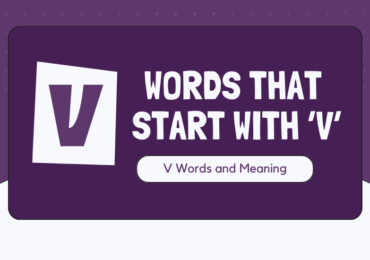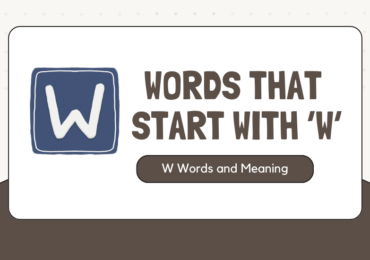Studying can be difficult, especially when there are so many distractions around us. Whether it's our phones, computers, or even our own thoughts, it can be hard to stay focused on the task at hand. But there are a few things you can do to avoid distractions and improve your study habits.
1. Find a quiet place to study
Finding a quiet place to study is important because it can help you to focus and learn more effectively. When you're surrounded by distractions, it can be difficult to stay on task and absorb new information. A quiet place can help you to block out distractions and create a more conducive environment for learning. Finding a quiet place to study can be challenging, but it's important to find a place that you can focus and learn. By following these tips, you can find the perfect place to study for you.
- A study room: If your home, school or workplace has a study room, this can be a great option for finding a quiet place to study. Study rooms are typically equipped with tables, chairs, and whiteboards, and they can be reserved in advance.
- The library: Libraries are a great option for finding a quiet place to study. Most libraries have designated study areas that are designed to be free from distractions.
- Your bedroom: Your bedroom can be a good option for finding a quiet place to study, but it's important to make sure that you're able to focus in that environment. If you have a lot of distractions in your bedroom, such as your bed or your TV, it might be better to find a different place to study.
- A park: If you're looking for a change of scenery, you can try studying in a park. Parks can be a great place to study if you're not easily distracted by noise or people.
- Your local community center: Community centers often have meeting rooms or study spaces that you can use for free. This can be a great option if you're on a budget or if you don't have access to other quiet places to study.
No matter where you choose to study, it's important to create a space that is conducive to learning. This means finding a place that is free from distractions and that is comfortable for you to work in.
2. Turn off your phone and other devices
Turning off your phone and other electronic devices can help you avoid distractions while studying. When your phone is on, you're constantly tempted to check your notifications, social media, or games. This can make it difficult to stay focused on your work. Here are some tips for turning off your phone and other electronic devices while studying.
- Put your phone away : The best way to avoid distractions from your phone is to put it away. This means putting it in a different room, turning it off, or putting it on silent.
- Turn off notifications: If you can't put your phone away, turn off notifications so that you're not constantly interrupted.
- Use an app to block distractions : There are a number of apps that can help you block distractions from your phone. These apps can block websites, apps, or even specific notifications.
- Set a timer : Set a timer for 25 minutes and study for that amount of time. Then, take a 5-minute break to check your phone or do something else. This will help you stay focused and avoid getting burned out.
If you find it difficult to turn off your phone and other electronic devices, you can try using a productivity app like Freedom or Forest. These apps can help you block websites and apps for a certain amount of time.
3. Create a study schedule
Creating a study schedule can be helpful in managing your time and ensuring that you are studying effectively. Creating a study schedule can be challenging, but it's worth it to find a way to stay focused and learn. By following these tips, you can create a study schedule that works for you and helps you achieve your goals.
- Start by determining your goals : What do you want to achieve by creating a study schedule? Do you want to improve your grades? Prepare for an exam? Learn a new skill? Once you know your goals, you can start to create a schedule that will help you achieve them.
- Consider your available time: How much time do you have to study each day? Once you know how much time you have, you can start to break it down into smaller increments. For example, if you have 2 hours to study each day, you could break it down into 4 25-minute sessions.
- Choose the right times to study : When are you most productive? Some people are morning people, while others are night owls. Choose times to study when you are most likely to be alert and focused.
Plan your breaks :It's important to take breaks when you study. This will help you stay focused and avoid burnout. Schedule short breaks every 25-30 minutes, and longer breaks every 2-3 hours. - Be flexible : Things don't always go according to plan, so be flexible with your study schedule. If you have an unexpected event, don't beat yourself up. Just reschedule your study time for another day.
4. Learn to say no
Learning to say no is an important skill that can help you protect your time, energy, and well-being. It can be difficult to say no, especially when you want to be helpful or avoid conflict. However, it is important to remember that you are not obligated to do everything that is asked of you.
- Be honest with yourself : What are your priorities? What do you really want to do with your time? Once you know your priorities, it will be easier to say no to things that aren't important to you.
- Be assertive : Don't be afraid to stand up for yourself and say what you want. It's okay to say no, even if it's not what the other person wants to hear.
- Be prepared : Have a few go-to phrases ready to use when you need to say no. For example, you could say "I'm sorry, but I'm not available right now" or "I'm not able to do that."
- Practice : The more you practice saying no, the easier it will become. Start by saying no to small things, and then gradually work your way up to saying no to bigger things.
- Be respectful : Even when you're saying no, it's important to be respectful of the other person. You can still say no without being rude or hurtful.
- Consider the consequences : What will happen if you say yes? What will happen if you say no? Thinking about the consequences can help you make a decision that's right for you.
- Don't feel guilty : It's okay to say no, even if the other person doesn't like it. You don't have to justify your decision to anyone.
- Don't be afraid to change your mind : If you say yes to something and then you change your mind, that's okay. Just be honest with the other person and let them know that you can't do it after all.
Learning to say no is a skill that takes practice. But it's a skill that's worth developing. By following these tips, you can learn to say no and protect your time and energy for the things that are most important to you.
5. Take care of your mental health
Taking care of yourself while studying is important for your physical and mental health. When you're well-rested, you're better able to focus and learn. Aim for 7-8 hours of sleep per night. Eating healthy foods gives you the energy you need to study. Avoid sugary drinks and processed foods. Exercise helps to improve your mood and concentration. Aim for at least 30 minutes of moderate-intensity exercise most days of the week. Don't try to study for hours on end without taking a break. Get up and move around every 20-30 minutes.
Taking some time for yourself to do something you enjoy can help you relax and de-stress. This could be reading, listening to music, or spending time with friends and family. Stress can interfere with your ability to study. Find healthy ways to manage stress, such as yoga, meditation, or spending time in nature.
Following these tips can help you avoid distractions and improve your study habits. But it's important to remember that everyone is different. What works for one person may not work for another. So experiment with different techniques and find what works best for you.









